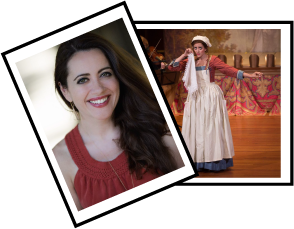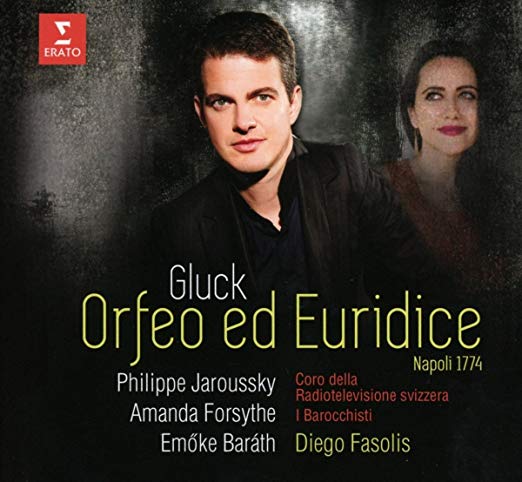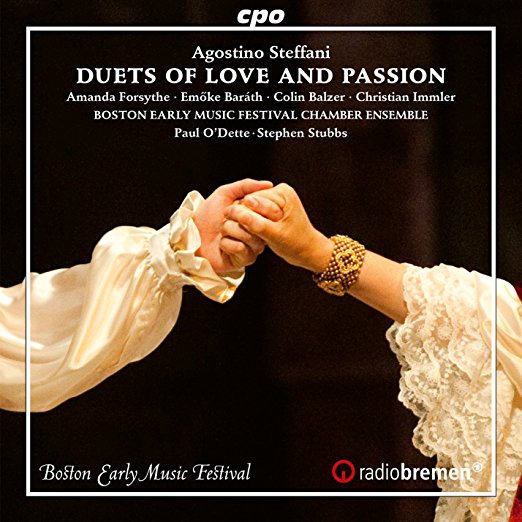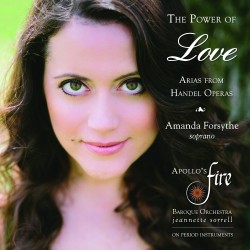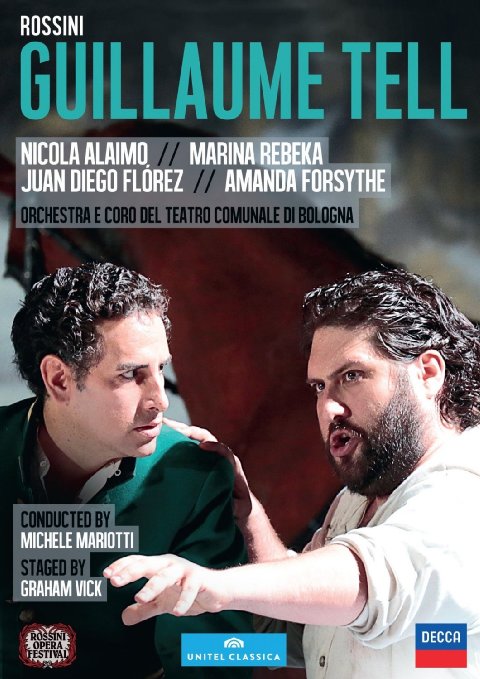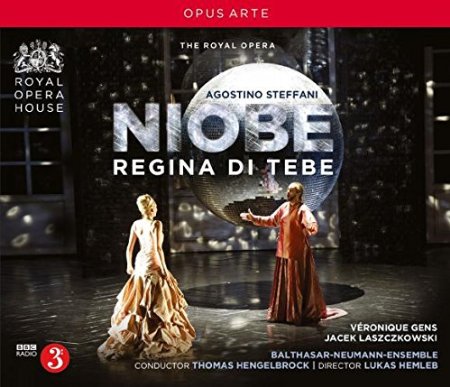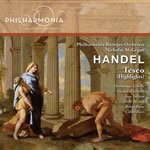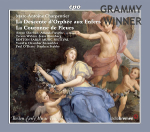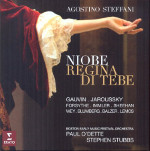"Amanda Forsythe lives up to high expectations as a Euridice both fiery and vulnerable. She and Jaroussky spar vividly as he leads her out of the Underworld; and she is unfazed by the high tessitura and spitfire arpeggios of her subsitute aria, cast in the (in 1774) fashionable form of a slow-fast rondò."
Gramophone/Richard Wigmore
“The most noticeable changes comes in the music for Euridice. Two of her numbers are new, attributed not to Gluck, but to Egidio Lasnel (pen name of the aristocrat Diego Naselli): the duet as Orfeo leads her towards the edge of the Underworld, in which the short exchanges give the music an almost Mozartian sense of bustle, and her ensuing aria, in which her passion now sounds a bit more marmoreal, for all the expressiveness Amanda Forsythe throws at it. Forsythe, her soprano bright yet soft-grained, contrasts well with Emöke Baráth, whose crisp, knowing Amor makes the prospect of a journey through the Underworld sound almost fun.”
The Guardian/Erica Jeal
“The new duet for the estranged spouses (significantly longer and more florid than its 1762 counterpart) wouldn’t sound out of place in an early Mozart opera, and the Sturm und Drang drama of Euridice’s ‘Che fiero momento’ is replaced by a cavatina and cabaletta that delivers the vocal pyrotechnics which Neapolitan opera-goers had come to expect: the flurry of scales ascending to high C prefigures Konstanze’s great display-piece ‘Marten aller Arten’ in Mozart’s Die Entführung eight years later, which prompted Emperor Joseph’s apocryphal shade-throwing about ‘too many notes’. Amanda Forsythe comes through with flying colours here, endowing music that verges on the prolix with real emotional depth – in this version, and in this interpretation, one truly sees why the opera is officially entitled Orfeo ed Euridice rather than simply Orfeo.”
Presto Classical/Katherine Cooper
“Amanda Forsythe as Euridice is in every way his equal. Indeed, in Senza un addio and her subsequent duet with Orfeo, Più frenarmi non posso, she almost out-sings him, making the most of the additional music that Gluck gave Euridice in 1774.”
Music Web International/ Brian Wilson
“De même, l’Euridice d’Amanda Forsythe est d’une élégance mozartienne et l’adjonction de son grand air de bravoure (pour satisfaire les caprices narcissiques de la prima donna et aussi satisfaire aux canons de l’opéra italien soit l’air peu joué ailleurs signé Lasnel / Naselli: « tu sospiri ») apporte un éclairage premier, majeur, grâce au timbre suave et idéalement incarné de la soprano : voilà qui donne une épaisseur inédite au personnage d’Euridice ; on comprend mieux que dans la scène VI, la ressuscitée confrontée à l’apparente froideur de son aimé, provoque son retournement fatal en pleine ascension salvatrice. La jeune soprano vole la vedette au contre-ténor français.”
Classique News/Camille de Joyeuse
“Amanda Forsythe gelingt es glaubhaft, Euridices Gefühlswirrwarr auszudrücken. Ihr klarer, energiegeladener Sopran harmoniert gut mit dem hellen Countertenor von Philippe Jaroussky.”
Deutschlandfunk/Dagmar Penzlin
“Dabei stehen die Damen Amanda Forsythe als Euridice und die ungarischen Sopranistin Emöke Baráth als Amor mit schlanker, wendiger Stimme keineswegs im Schatten des Helden. Die Amerikanerin erweist sich als sichere Gestalterin, die Euridices schwankender Gefühlswelt nicht nur mit subtiler Energie nachspürt, sondern deren Sopran auch ideal mit Jarousskys hellerem Timbre harmoniert.”
IKZ/ Dirk Aschendorf
“Al mismo nivel, y no cabe mayor elogio, contrastando como debe, la Euridice de Amanda Forsythe denota formidable presencia dramática y musicalidad, destacándose en su flamante aria Senza un addio? Tu suspiri, ti confondi.”
El Nuevo Herald/ Sebastian Spreng

